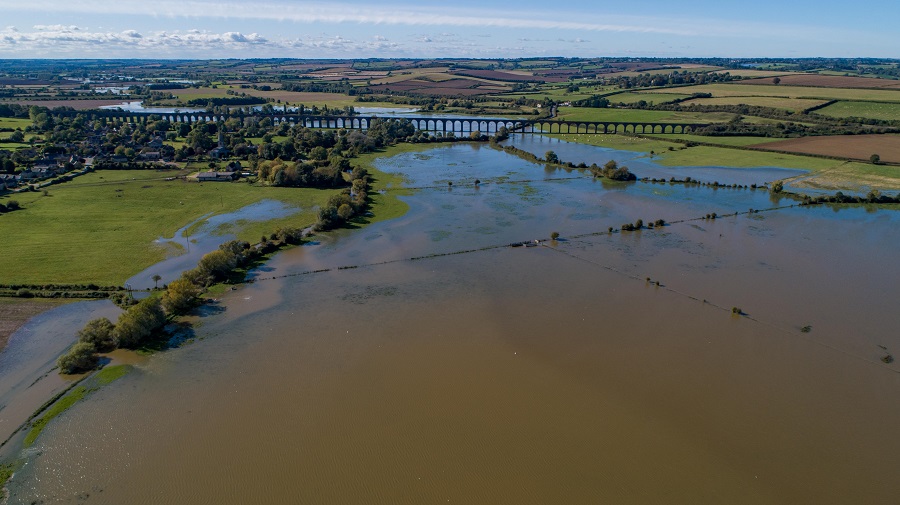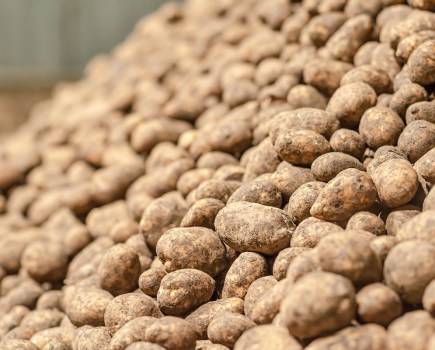Agriculture faces some tough times ahead as a result of climate change, according to a recent webinar. Lucy de la Pasture reports.
We’re only at the start of the Net Zero journey but achieving it will bring benefits to farm businesses and the country in general.
2020 has been a growing season that most growers will want to put firmly behind them but the climate extremes that it exemplified are likely to increase as the climate becomes warmer. The challenges and opportunities that climate change presents were discussed in a recent webinar hosted by The Farmers Club and British Crop Production Council (BCPC).
“Climate change is set to remodel UK Agriculture and the countryside,” said Stephen Howe, chairing the session. “Most growers have experienced the implications first-hand – particularly the financial cost and worries it can bring – after one of our wettest winters and autumns, followed by a spring and early summer drought.”
Evidence of the climatic change comes from recent Met Office statistics which reveal the past decade holds eight high temperature records compared with just one low-temperature record, he pointed out.
NFU’s climate change advisor Dr Ceris Jones described the ambition of reaching Net Zero as “the only game in town.” She highlighted that although policy was a key driver for reducing greenhouse gas (GHG) emissions, the impact the weather was having on farm is also a factor – with 60% of businesses affected by adverse weather events over the past 10 years.

Find out more about Climate Change Champions and how to nominate yourself for 2021
“We’re only at the start of the Net Zero journey but achieving it will bring benefits to farm businesses and the country in general.”
Growing crops that are more resilient is one way of surviving the mixed bag of threats and opportunities that climate change presents, said Prof Steven Penfield, group leader of Genes in the Environment at the John Innes Centre (JIC).
He used oilseed rape as an example of a crop where performance can vary widely from season to season due to weather variations.
“Average OSR yields can fluctuate by 1t/ha which impacts the grower by a potential £340/ha but, from a wider perspective, a lower yielding year can cost the UK economy £200M,” he said.
Research at JIC has found that temperature during Oct and Dec is correlated to high OSR yield – with a warm Oct and a cool Dec leading to higher yields. In contrast early winter warming poses a threat to OSR yields, with a combination of a cool Oct followed by a warm Dec resulting in yield depression.
“The tipping point is at the end of Oct when warm temperatures go from having a positive effect on yield to a negative one. It’s at this time that the apex of the OSR plant goes from forming leaves to forming flowers, which requires cool temperatures to deliver.”
The researchers have been looking at temperature effects in different ways, developing a protocol where individual plots can be heated in the field and monitored using thermal imaging techniques. Steven believes that this sort of research will be useful to help growers adapt to changing climatic temperatures.
“Trials have shown that further warming above today’s October temperatures (11⁰C) delay flowering but don’t appear to affect yield. It is most likely that cooler temperatures in Oct (historically 7.5-8⁰C) cause yield reductions but are now very rare, having virtually been eliminated by climate change.”
JIC are also using controlled environment rooms to simulate different growing seasons. The trials show that warm weather during winter leads to smaller and less organised inflorescences and a lower number of seeds on the main raceme.
Growers can limit variability from season to season by selecting the right genetics, he explained. “By looking at the variability of different varieties across all of the AHDB’s Recommended List trials, it’s possible to find the varieties least affected by a change in temperature.
He suggested growers should consider selecting varieties with low variability, in addition to higher yield. “We found Castille was most stable under different temperature regimes over the winter so this could be used in future breeding programmes to improve resilience.”
Ross Newham, operations director at NIAB’s East Malling Research believes sustainable intensification could release small amounts of ‘special’ land to deliver climate change objectives.
“The climate problem presents us with challenges at the very root of our production systems – much of which are a compromise between food production and biodiversity – but also gives us a huge opportunity to address import substitutions (as the climate extends growing seasons/cropping possibilities) with sustainable intensification.”
Ross believes science will be a fundamental help to shape the future and enable sustainable intensification. “The science of beneficial soil organisms will help mitigate phenomena such as yield fade after a first season crop; breeding of more resilient varieties which will grade better and so help reduce food waste; and breeding for more efficient utilisation of resources by crop plants.”




